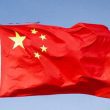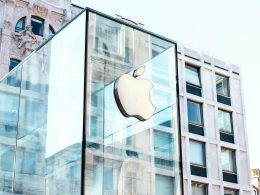In a bold move towards fostering innovation and attracting global tech giants, Argentina, under the leadership of economist Javier Milei, is positioning Landscape itself as a low-regulation hub for artificial intelligence (AI) development. This strategic initiative aims to capitalize on the burgeoning AI market while streamlining bureaucratic barriers that have historically hindered technological progress in the region.
The Emergence of Argentina as an AI Hub

Argentina’s foray into the AI landscape marks a significant departure from traditional economic policies. Historically characterized by stringent regulations and bureaucratic red tape, Argentina’s embrace of AI signals a paradigm shift towards a more dynamic and innovation-driven economy. Milei’s vision emphasizes the need for flexible regulatory frameworks that encourage experimentation and investment in cutting-edge technologies.
Advantages of Low-Regulation AI Hub
The appeal of Argentina as a low-regulation AI hub lies in its potential to attract both domestic and foreign investment. By reducing regulatory hurdles, the country can create an environment conducive to AI research, development, and implementation. This approach not only stimulates economic growth but also positions Argentina as a competitive player in the global AI market.
Analysis of Regulatory Reforms Milei’s proposed regulatory reforms aim to address key barriers to AI adoption, including cumbersome bureaucracy, outdated legislation, and lack of incentives for innovation. By streamlining the regulatory process, Argentina can accelerate the pace of technological advancement and position itself as a leader in AI development within the Latin American region.
Comparative Analysis:
Argentina vs. Global AI Hubs To gauge Argentina’s competitiveness as an AI hub, a comparative analysis with established global counterparts is imperative. Countries like the United States, China, and Israel have emerged as frontrunners in AI innovation, boasting robust ecosystems characterized by ample funding, top-tier talent, and supportive regulatory environments. Argentina’s challenge lies in bridging the gap with these leading AI hubs while leveraging its unique strengths, such as a skilled workforce and strategic geographical location.
Challenges and Opportunities
While Argentina’s push towards becoming an AI hub is commendable, it faces several challenges on the path to success. These include infrastructural limitations, brain drain, and political instability, which could dampen investor confidence and hinder long-term sustainability. However, with proper strategic planning and stakeholder collaboration, Argentina can overcome these obstacles and emerge as a formidable player in the global AI arena.
Analysis Table: Regulatory Reforms
| Regulatory Reforms | Impact |
|---|---|
| Streamlining bureaucracy | Accelerates the pace of AI development and implementation |
| Updating legislation | Ensures alignment with technological advancements |
| Incentivizing innovation | Stimulates investment and fosters a culture of creativity |
| Reducing red tape | Improves efficiency and enhances business competitiveness |
Comparative Table: Argentina vs. Global AI Hubs
| Criteria | Argentina | Global AI Hubs (e.g., US, China, Israel) |
|---|---|---|
| Regulatory Environment | Transitioning towards low-regulation regime | Established frameworks supporting innovation |
| Investment in AI | Growing, but still nascent | Substantial investment in research and development |
| Talent Pool | Skilled workforce with untapped potential | Access to top-tier talent from around the globe |
| Infrastructure | Developing infrastructure | Advanced technological infrastructure |
| Political Stability | Historically unstable, improving | Relatively stable political environments |
By analyzing the regulatory reforms, comparative advantages, and challenges facing Argentina, it becomes evident that while the path to becoming a low-regulation AI hub is fraught with challenges, the potential rewards are immense. With concerted efforts and strategic planning, Argentina has the opportunity to carve out a niche for itself in the global AI landscape, driving economic growth and innovation for years to come.
Conclusion
Milei’s ambitious vision to position Argentina as a low-regulation AI hub represents a paradigm shift in the country’s economic trajectory. By embracing innovation and fostering a conducive regulatory environment, Argentina has the potential to unlock new avenues of growth and establish itself as a key player in the global AI landscape. However, realizing this vision will require concerted efforts from both the public and private sectors to navigate challenges and seize emerging opportunities.












